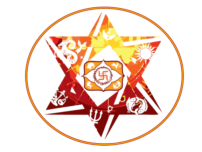Reiki healing

The Vedic Living provides Best Reiki Healing Courses.
Reiki is a holistic healing technique is based on the idea of channeling universal life force energy to promote balance and well-being. Reiki healing is typically divided into different levels, each representing a distinct stage of training and proficiency.
Here's a detailed write-up of each level:
Reiki Level 1 – Beginner Level:
-
Introduction to Reiki:
- Understanding the history and principles of Reiki.
- Explanation of the concept of universal life force energy.
-
Attunement:
- Receiving the first attunement from a Reiki Master to open the energy channels.
- Learning how to connect to the universal energy source.
-
Hand Positions:
- Basic hand positions for self-healing and treating others.
- Techniques for scanning and sensing energy.
-
Healing Basics:
- Practice in channeling Reiki energy for self-healing and simple treatments.
- Introduction to the concept of energy clearing and cleansing.
-
Grounding Techniques:
- Learning grounding methods to stay connected and balanced.
- Techniques for maintaining personal energy hygiene.
-
Introduction to Chakras:
- Overview of the seven main energy centers in the body (chakras).
- Basic techniques for balancing and clearing chakras.
-
Ethics and Intentions:
- Understanding ethical considerations in practicing Reiki.
- Setting positive intentions for healing.
-
Certification:
- Recognition of completion of Reiki Level 1.
- Typically, students are encouraged to practice self-healing regularly.
Reiki Level 2 – Practitioner Level:
-
Symbols and Mantras:
- Introduction to Reiki symbols and their meanings.
- Learning the corresponding mantras for each symbol.
-
Distance Healing:
- Techniques for sending Reiki energy across time and space.
- Practice in distant healing for oneself and others.
-
Emotional Healing:
- Techniques for addressing emotional issues with Reiki.
- Understanding the connection between emotions and energy.
-
Advanced Hand Positions:
- Additional hand positions for treating specific areas and conditions.
- Techniques for focusing energy on particular body parts.
-
Professional Practice:
- Exploring the ethics and responsibilities of offering Reiki professionally.
- Setting up a professional Reiki practice.
-
Advanced Techniques:
- Learning advanced Reiki techniques such as beaming and clearing spaces.
- Introduction to the use of crystals with Reiki.
-
Certification:
- Recognition of completion of Reiki Level 2.
- Often requires practical experience and case studies.
Reiki Level 3 – Master/Teacher Level:
-
Master Symbol:
- Introduction to the master symbol and its significance.
- Learning the mantra associated with the master symbol.
-
Master Attunement:
- Receiving the master attunement for higher vibrational frequencies.
- Deepening the connection to the universal life force energy.
-
Teaching Reiki:
- Techniques for attuning others to Reiki energy.
- Developing teaching skills for Reiki classes.
-
Master Practitioner Techniques:
- Advanced healing techniques for addressing complex issues.
- Deepening the understanding of energy dynamics.
-
Integration of Reiki into Daily Life:
- Strategies for incorporating Reiki into daily routines.
- Exploring the spiritual aspects of Reiki practice.
-
Certification:
- Recognition as a Reiki Master/Teacher.
- Often requires demonstrating the ability to attune and teach others.
Reiki Level 4 – Master Teacher Level:
-
Teacher Mastery:
- In-depth training on teaching Reiki classes effectively.
- Guidance on creating course materials and structuring classes.
-
Attunement Mastery:
- Understanding and refining the attunement process.
- Practicing attunements with precision and clarity.
-
Advanced Spiritual Development:
- Deepening the spiritual aspects of Reiki practice.
- Exploring advanced meditation and energy work.
-
Community Outreach:
- Strategies for contributing to the Reiki community.
- Developing initiatives for spreading awareness.
-
Certification:
- Recognition as an advanced Reiki Master Teacher.
- Often requires demonstrated proficiency in teaching and mentoring.
